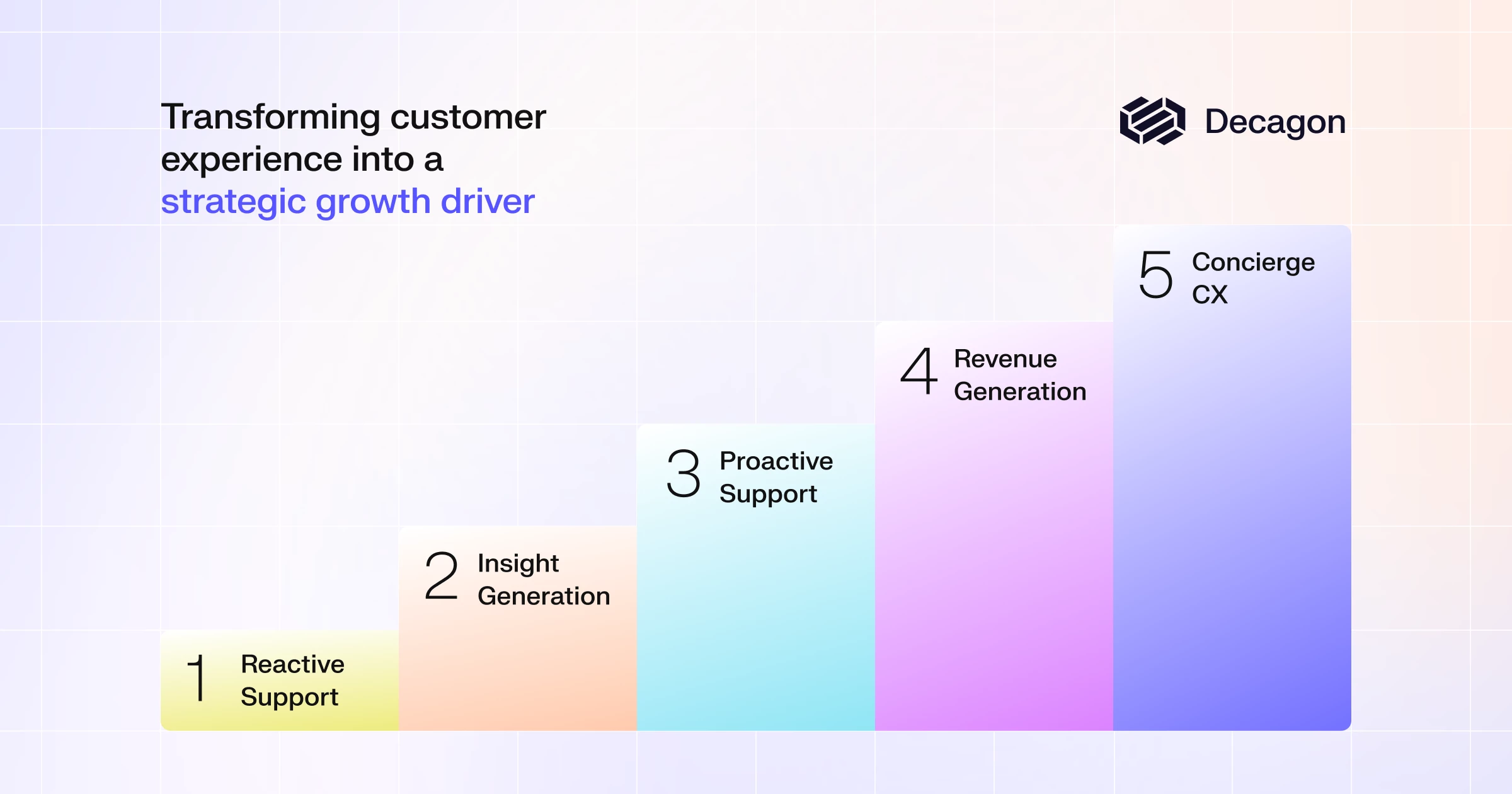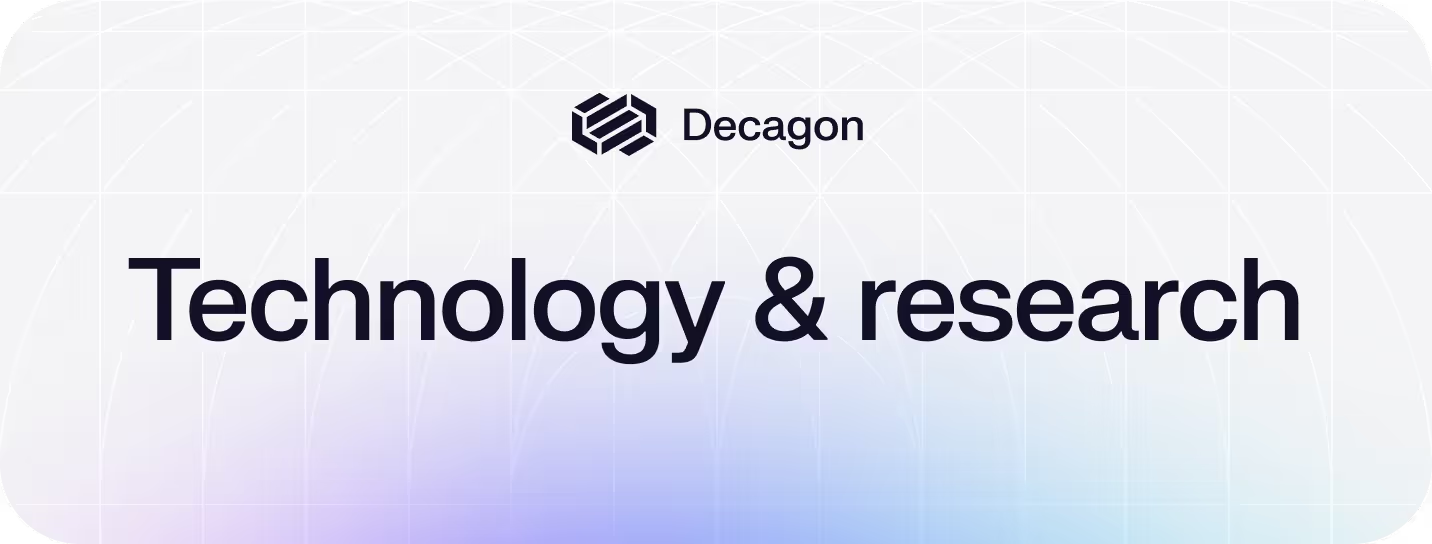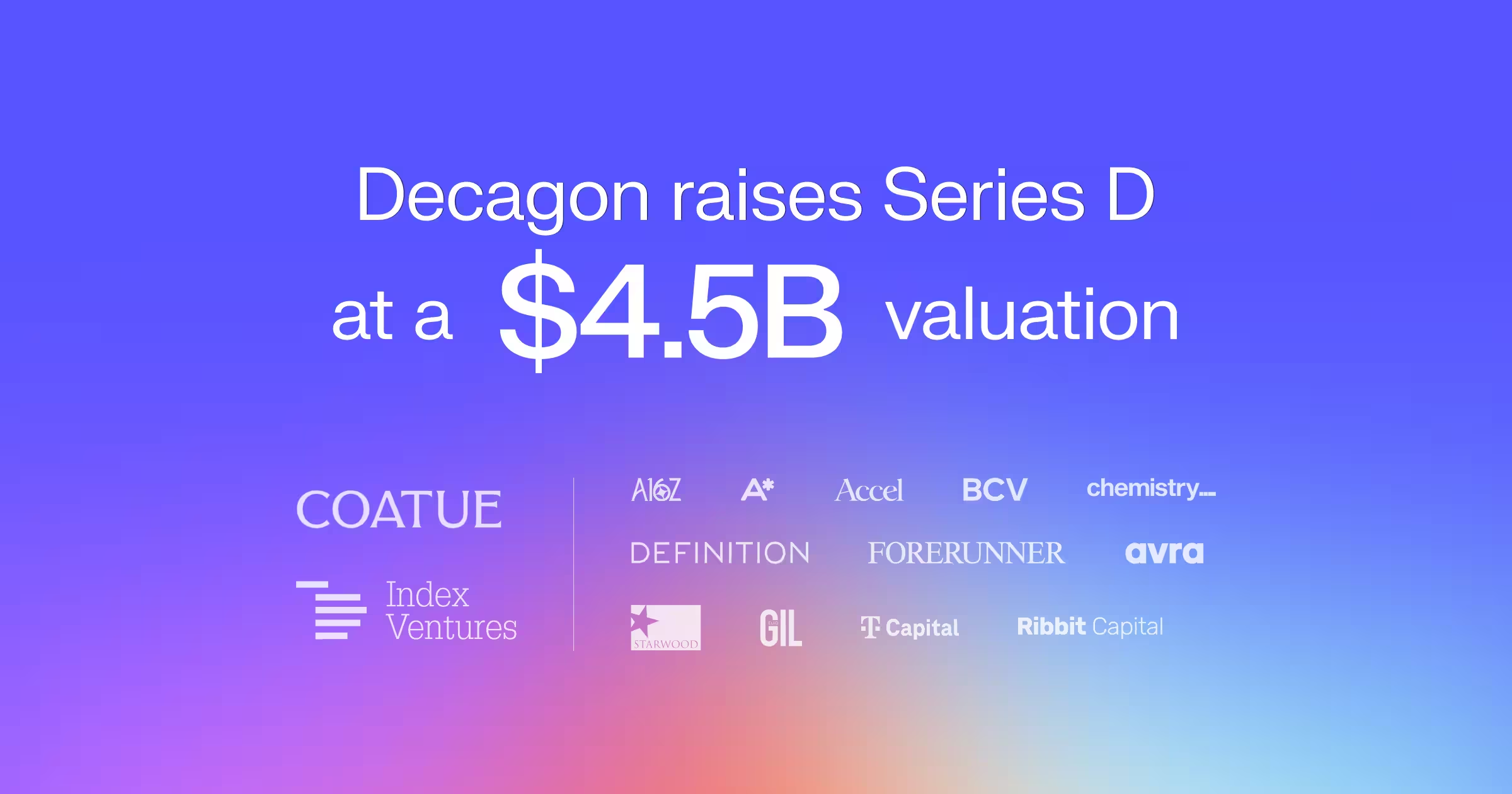From support to growth: The next evolution of AI agents
What began as AI for support is now powering the next wave of customer growth and brand loyalty.

AI agents are already transforming the world of customer support. They resolve issues instantly, automate complex workflows, and surface insights that reveal what customers really want. For most companies, their AI journey has begun in this domain, automating repetitive tasks and driving efficiency.
But for the most forward-looking teams, it’s also where the next opportunity emerges. Once you’ve built an intelligent, conversational interface that truly understands your customers, the question becomes: why stop at support workflows?
That same AI foundation, capable of understanding intent, recalling context, and acting autonomously, can power entirely new kinds of customer experiences that generate revenue and build brand loyalty for a company. AI-powered support expands beyond a cost-saver into a growth engine, where every customer interaction becomes a chance to expand the business.
Guiding customers through product discovery
One of the clearest examples of this shift is in product discovery and recommendations. Finding the right product can be overwhelming when customers are forced to scroll through product catalogs with simplistic filters and menus. AI agents can change that dynamic and act as intelligent guides, learning from each interaction to understand a shopper’s intent and preferences, then surfacing the right products in real time.
A retailer using Decagon today lets customers find and compare items directly through chat, complete with embedded photos of suggested options. It’s like having a personal shopper built into the brand experience. Next, that same retailer is exploring how to use its Decagon agent to proactively reach out with back-in-stock notifications, turning one-time interest into ongoing engagement.
Accelerating lead follow-up and progression
In sales and conversion workflows, timing is everything. When potential customers express interest but drop off midway through an application or form, traditional outreach often comes too late. AI agents ensure those moments aren’t lost by stepping in when intent fades to keep the conversation moving and the opportunity alive.
One financial services company uses an agent to automatically place outbound calls to leads who begin but don’t complete a loan application. The agent picks up where the customer left off, confirming details, answering questions, and helping them finish the process over the phone. What was once a bottlenecked, manual follow-up process is now a seamless, conversational one. The result is higher completion rates, faster decisions, and less operational overhead.
Making upsells and cross-sells feel natural
Upselling is another area where AI agents shine, not because they push more aggressively, but because they do it more seamlessly and intelligently than static UIs. Customers are used to clunky prompts, such as a pop-up window suggesting an add-on or a checkout screen that feels purely transactional. AI agents can do better by introducing relevant offers naturally within the conversation, based on timing, intent, and customer sentiment.
A hospitality group, for example, uses its Decagon agent to enhance guest bookings. When a customer reserves a table at their restaurant, the agent might mention a seasonal tasting menu or suggest a private dining room for special occasions. Because it’s conversational, the recommendation feels thoughtful rather than forced. These subtle moments add up and create incremental revenue while improving the overall experience.
Turning loyalty into a living conversation
Loyalty programs are a proven way to drive repeat business, but they often suffer from low awareness and engagement. Customers forget to sign up, miss out on benefits, or lose track of rewards. AI agents bring loyalty programs to life by making them feel more interactive and guiding customers toward the next best action rather than leaving them to navigate the details on their own.
A travel brand is exploring how to use Decagon to identify frequent travelers during the booking process and automatically invite them to join its loyalty program. After a trip, the same agent could follow up with a personalized summary of points earned and available redemptions, helping customers stay connected long after their journey ends. By embedding these moments in conversation, the experience becomes seamless, personal, and rewarding by design.
Rethinking retention and reactivation
Retention is another area ready for AI transformation. Many companies only realize they’ve lost a customer after it’s too late, such as when a subscription lapses or an appointment goes unfilled. AI agents can help businesses intervene earlier, turning what used to be silent churn into timely engagement that builds trust and loyalty.
A Decagon agent in the healthcare space makes it simple for patients to cancel appointments through both voice and chat. Once a cancellation is confirmed, the agent immediately offers to rebook to retain revenue for the provider. If the patient chooses not to rebook, the same system is being expanded to proactively reach out to other patients who’ve requested earlier slots, filling open appointments and improving overall efficiency and care.
Conversations that create value
What ties all these examples together is a simple but powerful idea: conversational AI agents are not limited to support-based workflows, but can reinvent and improve many customer experiences. They can guide customers, close gaps in the journey, and create new value without adding friction.
Decagon’s platform makes this possible through a combination of capabilities built specifically for growth-oriented interactions. Agents can share rich media (e.g., photos, videos, and contextual visuals) to make discovery more engaging. They can act proactively based on triggers that match customer behavior or intent. They operate with strict guardrails to ensure outreach and upsell actions always align with brand and compliance requirements. And they feed into a robust analytics suite that uncovers what customers are asking for and acts as the foundation for your next wave of growth opportunities.
Support may have been the first frontier for AI agents, but it’s far from the last. Businesses across every industry are seeing each customer conversation as a moment to not just resolve an issue, but to deepen the relationship and drive revenue.




From support to growth: The next evolution of AI agents
October 30, 2025
AI agents are already transforming the world of customer support. They resolve issues instantly, automate complex workflows, and surface insights that reveal what customers really want. For most companies, their AI journey has begun in this domain, automating repetitive tasks and driving efficiency.
But for the most forward-looking teams, it’s also where the next opportunity emerges. Once you’ve built an intelligent, conversational interface that truly understands your customers, the question becomes: why stop at support workflows?
That same AI foundation, capable of understanding intent, recalling context, and acting autonomously, can power entirely new kinds of customer experiences that generate revenue and build brand loyalty for a company. AI-powered support expands beyond a cost-saver into a growth engine, where every customer interaction becomes a chance to expand the business.
Guiding customers through product discovery
One of the clearest examples of this shift is in product discovery and recommendations. Finding the right product can be overwhelming when customers are forced to scroll through product catalogs with simplistic filters and menus. AI agents can change that dynamic and act as intelligent guides, learning from each interaction to understand a shopper’s intent and preferences, then surfacing the right products in real time.
A retailer using Decagon today lets customers find and compare items directly through chat, complete with embedded photos of suggested options. It’s like having a personal shopper built into the brand experience. Next, that same retailer is exploring how to use its Decagon agent to proactively reach out with back-in-stock notifications, turning one-time interest into ongoing engagement.
Accelerating lead follow-up and progression
In sales and conversion workflows, timing is everything. When potential customers express interest but drop off midway through an application or form, traditional outreach often comes too late. AI agents ensure those moments aren’t lost by stepping in when intent fades to keep the conversation moving and the opportunity alive.
One financial services company uses an agent to automatically place outbound calls to leads who begin but don’t complete a loan application. The agent picks up where the customer left off, confirming details, answering questions, and helping them finish the process over the phone. What was once a bottlenecked, manual follow-up process is now a seamless, conversational one. The result is higher completion rates, faster decisions, and less operational overhead.
Making upsells and cross-sells feel natural
Upselling is another area where AI agents shine, not because they push more aggressively, but because they do it more seamlessly and intelligently than static UIs. Customers are used to clunky prompts, such as a pop-up window suggesting an add-on or a checkout screen that feels purely transactional. AI agents can do better by introducing relevant offers naturally within the conversation, based on timing, intent, and customer sentiment.
A hospitality group, for example, uses its Decagon agent to enhance guest bookings. When a customer reserves a table at their restaurant, the agent might mention a seasonal tasting menu or suggest a private dining room for special occasions. Because it’s conversational, the recommendation feels thoughtful rather than forced. These subtle moments add up and create incremental revenue while improving the overall experience.
Turning loyalty into a living conversation
Loyalty programs are a proven way to drive repeat business, but they often suffer from low awareness and engagement. Customers forget to sign up, miss out on benefits, or lose track of rewards. AI agents bring loyalty programs to life by making them feel more interactive and guiding customers toward the next best action rather than leaving them to navigate the details on their own.
A travel brand is exploring how to use Decagon to identify frequent travelers during the booking process and automatically invite them to join its loyalty program. After a trip, the same agent could follow up with a personalized summary of points earned and available redemptions, helping customers stay connected long after their journey ends. By embedding these moments in conversation, the experience becomes seamless, personal, and rewarding by design.
Rethinking retention and reactivation
Retention is another area ready for AI transformation. Many companies only realize they’ve lost a customer after it’s too late, such as when a subscription lapses or an appointment goes unfilled. AI agents can help businesses intervene earlier, turning what used to be silent churn into timely engagement that builds trust and loyalty.
A Decagon agent in the healthcare space makes it simple for patients to cancel appointments through both voice and chat. Once a cancellation is confirmed, the agent immediately offers to rebook to retain revenue for the provider. If the patient chooses not to rebook, the same system is being expanded to proactively reach out to other patients who’ve requested earlier slots, filling open appointments and improving overall efficiency and care.
Conversations that create value
What ties all these examples together is a simple but powerful idea: conversational AI agents are not limited to support-based workflows, but can reinvent and improve many customer experiences. They can guide customers, close gaps in the journey, and create new value without adding friction.
Decagon’s platform makes this possible through a combination of capabilities built specifically for growth-oriented interactions. Agents can share rich media (e.g., photos, videos, and contextual visuals) to make discovery more engaging. They can act proactively based on triggers that match customer behavior or intent. They operate with strict guardrails to ensure outreach and upsell actions always align with brand and compliance requirements. And they feed into a robust analytics suite that uncovers what customers are asking for and acts as the foundation for your next wave of growth opportunities.
Support may have been the first frontier for AI agents, but it’s far from the last. Businesses across every industry are seeing each customer conversation as a moment to not just resolve an issue, but to deepen the relationship and drive revenue.








